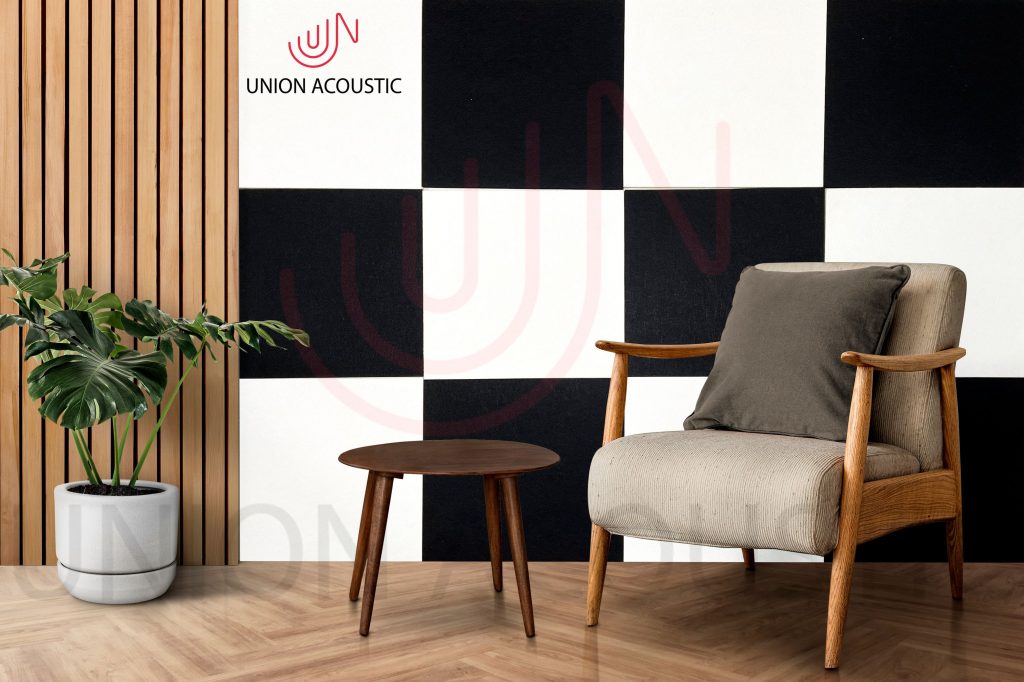
Acoustic panels are becoming increasingly popular for controlling noise in a variety of settings. Whether you’re looking to reduce the sound in your home office, recording studio, or theater, acoustic panels are an effective way to reduce the noise. But what are acoustic panels, exactly? And how do you choose the right ones? Read on to find out the answers to these and other commonly asked questions about acoustic panels.
-
What Are Acoustic Panels?
Acoustic panels are designed to reduce sound reverberation and improve sound clarity in a room. They can be used in a variety of spaces, from home theaters to offices. Acoustic panels come in a variety of sizes and shapes, allowing for customization to suit your specific needs. Typically, they are made from sound-absorbing materials, such as foam or fiberglass, and feature a fabric or vinyl covering.
Additionally, acoustic panels can be used in combination with other sound-absorbing solutions, such as carpets, drapes and wall hangings, for an even better sound quality. Whether you’re looking to dampen noise in your home or create a more comfortable work environment, acoustic panels are an effective way to go.
-
How Do Acoustic Panels Work?
Acoustic panels absorb sound waves and reduce the reverberation of sound in a given space. This is especially important when trying to create a quiet and comfortable environment. Acoustic panels are becoming increasingly popular in places such as recording studios, offices, and even homes. They come in a variety of sizes, colors and materials, allowing you to customize your space with the look that best fits your environment. With the help of acoustic panels, you can create a space with noise reduction without compromising on aesthetics.
Moreover, acoustic panels offer many advantages when they are mounted on walls or ceilings. This is because it creates a better soundproofing effect by reducing the external noises that may interfere with the audio. Consequently, speech and music can be heard in greater clarity, making it an essential addition to any professional recording studio or commercial space.
-
Where Are Acoustic Panels Used?
Acoustic panels are often used in recording studios, concert halls, and other venues to reduce echoes and reverberations. They can be hung on walls and ceilings to reduce music and sound reflections, adding clarity and dynamic range to the sound. Acoustic panels are also great for creating a comfortable listening experience in home theaters and other listening spaces. They absorb sound waves to make the sound of your music, movies, and audio recordings sound clearer and more balanced. Acoustic panels are an essential part of soundproofing any space, adding sound absorption and improved acoustics.
They can also be used in offices and classrooms to block out distracting outside noises and help promote concentration. Acoustic panels are a great solution for preventing echoes and reverberations within a space. They reduce sound levels, absorb echoes, and provide an aesthetically pleasing look. These panels come in various sizes, shapes, and materials, so you can find one that fits your unique needs. Acoustic panels are a great choice for any room that needs added sound dampening and noise reduction.
Thus, acoustic panels are the ideal solution for home theaters, providing improved clarity and sound quality while enjoying a movie or show. Not only do they absorb reverberations and create a more pleasant and natural soundscape, but acoustic panels can enhance the acoustics of any room. So, if you’re in need of better sonic performance from your home theater experience, the addition of an acoustic panel is definitely worth considering.
-
Tips for Choosing the Right Acoustic Panel for Your Space
When choosing acoustic panels for your space, you should consider the size of the room and the type of noise you are trying to absorb. Acoustic panels are a great way to control and reduce sound levels from inside and outside the room, and can be a great way to create a more comfortable acoustic environment.
Depending on the size of the room and the type of noise you are dealing with, you will need to select the right type of acoustic panel. Acoustic panels come in a variety of sizes, shapes, and materials, so it is important to choose the right one for the job. Additionally, acoustic panels can be hung on walls, placed in corners, or even suspended from the ceiling, making them a versatile and flexible solution for any space.
